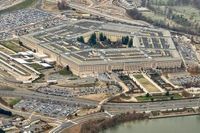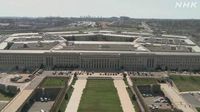The Pentagon is weighing the decision to halt the planned expansion of U.S. military presence in Japan, a move that could potentially save over 1 billion dollars amidst ongoing government efficiency measures. CNN reported on March 19, 2025, that this strategic reconsideration comes at a time when the Trump administration seeks to streamline federal operations.
According to the documents obtained by CNN, halting the expansion could result in significant savings—about 1.1 billion dollars—as funds earmarked for modernizing personnel and improving command and control systems might go unused. However, this prudent financial decision is not without its risks. The documents also indicate that such a halt could create a 'political risk' for the United States in its relations with Japan.
This strategic shift towards reassessing military commitments follows a year after the Biden administration undertook moves to modernize U.S. forces in Japan, responding to rising tensions and threats from China. The United States previously planned to transform its military setup in Japan by shifting towards a unified command structure to foster better coordination with Japan's Self-Defense Forces.
As part of evaluating ways to optimize the military presence, the Pentagon is projected to reduce civilian personnel by 5-8%, a measure reflecting a larger trend under the Trump administration to review and potentially reduce the size of federal agencies. This includes considerations of merging military commands across Europe and Africa into a single command to further enhance efficiency.
This new directive from the Pentagon indicates a significant alteration in U.S. military strategy, particularly as international dynamics shift rapidly. The need to adapt amid these changes is crucial, especially as the geopolitical landscape becomes increasingly complex.
In light of these developments, some analysts suggest that while trimming military expenditures may seem pragmatic, the long-term implications for U.S. influence in the Asia-Pacific region warrant a closer examination. The potential fallout from diminishing military posture could undermine previously established partnerships and trust with allied nations.
The collaboration between the Pentagon and the Department of Government Efficiency (DOGE), helmed by Elon Musk, is part of broader efforts aimed at identifying areas for cutting government spending. This collaboration is particularly seen as an innovative move; however, it raises questions about the efficacy of privatization efforts in governmental functions.
CNN has further reported that discussions within the Pentagon have also broached the topic of dismantling the oversight departments responsible for the coordination and training of joint forces. Such drastic steps pose a significant shift not only in operational efficiency but in the very fabric of how military commands function.
As these deliberations unfold, the responses from key stakeholders will be critical. The Japanese government, as well as military leaders, will likely be watching closely to assess the United States' commitment to regional security and countering aggressions from nations like China.
In conclusion, while the Pentagon's proposed halt may offer immediate financial benefits, the broader implications for U.S.-Japan relations and national security strategy require thoughtful deliberation. The balance between cost savings and preserving military readiness in a volatile region remains a pressing challenge for the administration moving forward.





